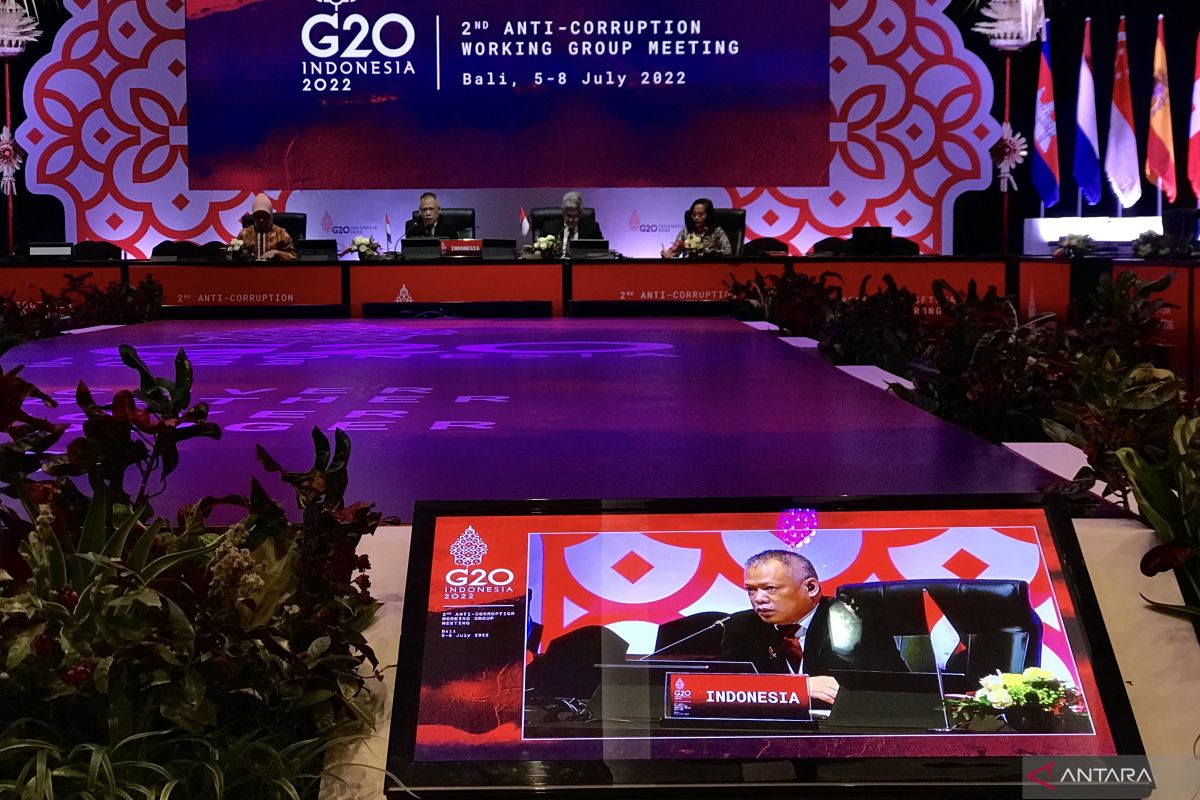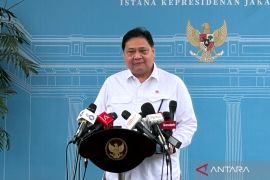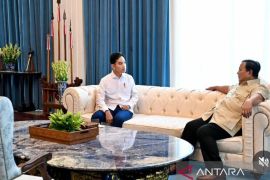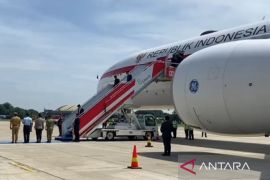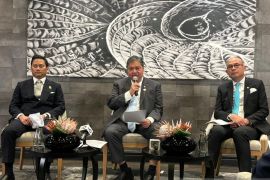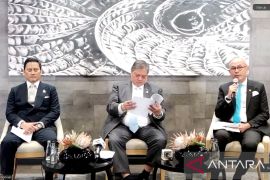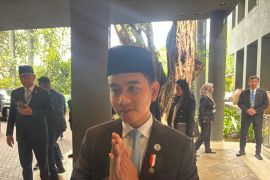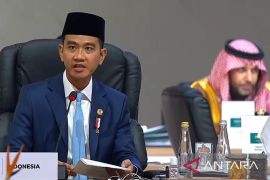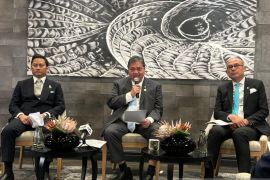Obtaining this agreement is a success for the Indonesian delegation, which is leading the 2nd ACWG from July 5–8, 2022, chair of the 2nd ACWG Round, Mochamad Hadiyana, said during a press conference in Badung, Bali, on Thursday.
He was accompanied by Rolliansyah Soemirat, director of ASEAN political and security cooperation at the Ministry of Foreign Affairs, who co-chaired this year's ACWG meeting.
"For the good cooperation between the Corruption Eradication Commission (KPK) and the Ministry of Foreign Affairs, Indonesia has succeeded in obtaining an outcome document (policy document, ed.) in the form of a high-level principle regarding strengthening the role of audit in eradicating corruption," Hadiyana informed.
He said that the agreement showed the G20 countries recognize the important role of audit institutions and auditors in preventing and eradicating corruption.
"This is a success for Indonesia, not only the KPK, but Indonesia's success, because in it (the ACWG forum), we also involved other agencies in proposing priority issues, including cooperation from the Ministry of Foreign Affairs," Hadiyana, who serves as deputy for information and data at the Corruption Eradication Commission (KPK), added.
At the press conference, Soemirat, who led the ACWG forum with Hadiyana, emphasized that the agreement on the high-level principles by the G20 delegates was an important achievement because it was the highest document produced by the G20 working group.
"These are the agreed principles that will serve as a guideline for all G20 countries and (policy documents, ed.) will be agreed at the leaders' level," he said.
He stressed that the document will not only serve as a guide for G20 countries, but will be a reference for the preparation of similar documents at other international forums.
He said that the agreed draft document consists of 54 paragraphs that summarize six main principles.
“The first principle is that there is an agreement to support the role of audit bodies in preventing and tackling corruption. Second, the agreement strengthens the role and capacity of supreme audit institutions, and the internal audit sector, the public sector, to identify, prevent, and tackle corruption based on their respective mandates," he said.
Third, G20 member countries have agreed to develop a strong national cooperation framework to promote follow-ups on various findings.
Fourth, the countries have agreed to strengthen cooperation between various major audit institutions (supreme audit institutions) as well as internal audit bodies at public institutions.
Fifth, they have agreed to support the use of information and communication technology (ICT) to strengthen the role of audit in eradicating corruption.
Sixth, the G20 countries have agreed that private auditors have a more active role in identifying and reporting corruption.
Soemirat said that the process of reaching an agreement has been ongoing since the 1st ACWG in Jakarta in March 2022, and it has been successfully completed at the 2nd ACWG.
ACWG is an anti-corruption working group that is part of the G20 Sherpa Track. The working group is an important part of the series of G20 summits because it is believed that corruption is still a challenge that is hindering economic growth and the achievement of the sustainable development goals (SDGs).
G20 is an international forum comprising 19 countries and the European Union that work together to handle major issues. Indonesia is holding the presidency of the grouping this year.
Related news: KPK to re-highlight four priority issues at 2nd ACWG G20
Related news: KPK official opens anti-corruption education workshop in second ACWG
Translator: Genta T, Azis Kurmala
Editor: Rahmad Nasution
Copyright © ANTARA 2022
